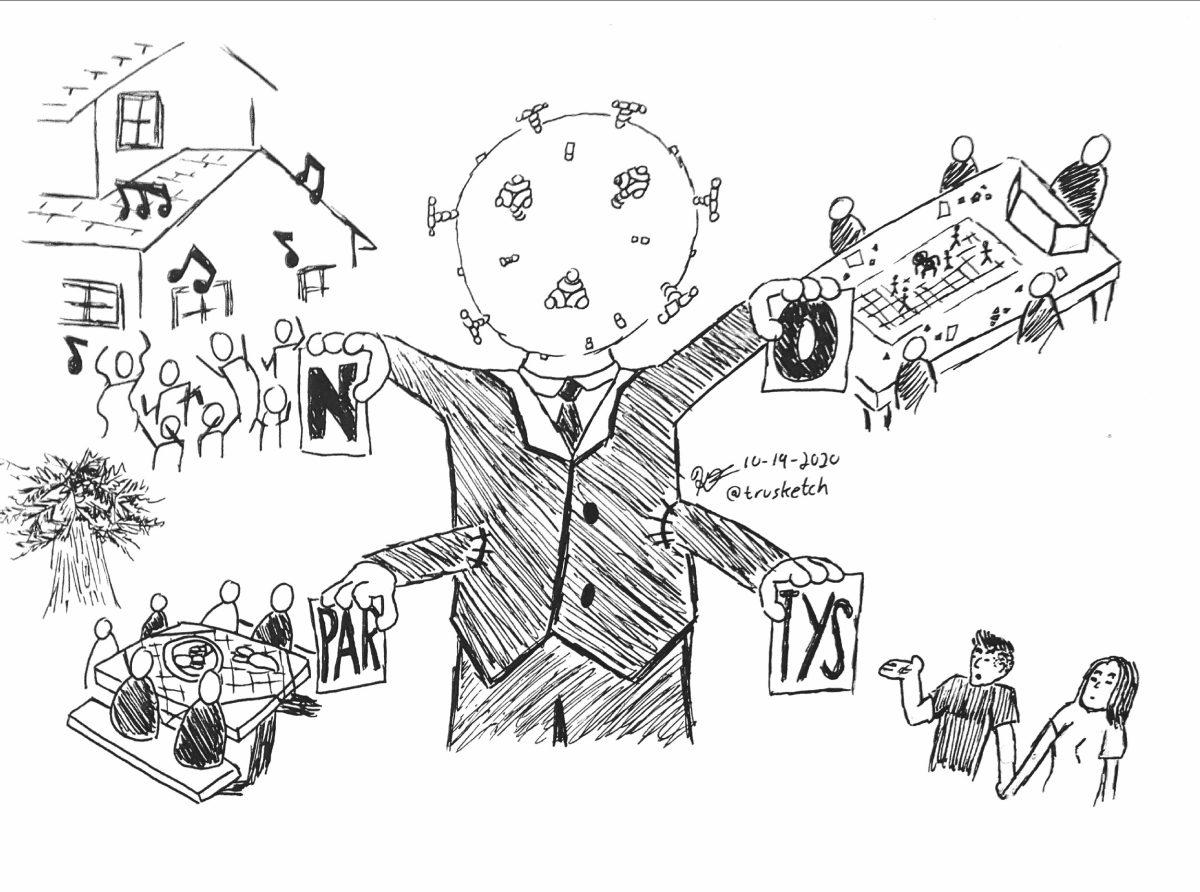Many Sonoma State University students let out a collective groan of frustration and disappointment on Sept. 8 when Rohnert Park city council adopted Ordinance No. 951, which repealed Chapter 9.48 “Alcohol Offense/Loud Parties”. This new ordinance comes with a couple of major changes to what constitutes a “party” and the consequences one can face if they are reported for a loud and unruly gathering.
Originally, for something to be deemed a party, it had to consist of 10 or more individuals, however, this has changed to a mere two people. With this more lax interpretation of a party, officers have more freedom to dish out warnings and fines. Being held responsible for throwing an illegal party has also become more harsh.
Before the new ordinance was adopted, first time offenders would receive a “120”. Essentially, a “120” is a warning. No fines come attached with a 120, however, a notice had to be visibly posted on the house or apartment, letting onlookers know that a gathering took place and intervention from the city was required as a result of a public nuisance. This notice had to remain visible on the residence for 120 days. Any additional “loud and unruly gatherings” that are reported after 120 days resulted in a fine that had to be paid by the responsible party. However, under the new ordinance “120s” have become “365s”, meaning that the 120 day “parole” period has switched to a year-long threat of fines.
This spells trouble for many college students. It’s no secret that party culture is an important part of the college experience to many, and more often than not it was college students who had to deal with the dreaded 120s. With frat boys living next to families, party houses in quiet suburbs, and no Greek Row to help compartmentalize some of the noise, it is looking like off-campus partying has become far more difficult.
Some may believe this is an attack on students, and under normal circumstances, it would be easy to argue that it is. Rohnert Park isn’t known as the “college friendly” city, and Seawolves can feel that, but perhaps stricter restrictions on partying is actually beneficial, not just to students but to the community as a whole.
With COVID-19 still rampaging in the country and a “Shelter in Place” order across the state, maybe it actually makes sense to crack down on parties in an attempt to stop the spread of this deadly virus. In theory, parties should be a thing of the past anyway. We aren’t supposed to be congregating in large groups, especially for something as frivolous as a party. According to healthline.com, college students have become COVID-19 “superspreaders,” partly due to all of the partying. In fact, a study by khn.org reported that college reopenings have added an average of 3,000 COVID cases per day to the nation’s total between mid-July and mid-September. So, perhaps if students shake off their initial petty disappointment in that “their partying lives are being totally ruined,” they may begin to see the potential health benefits for the community in stricter partying guidelines. With less people meeting up, there is less chance for the disease to spread.
Everyone should want a safer and healthier city, so under the extraordinary circumstances of COVID-19, these restrictions aren’t unreasonable. The only foreseeable problem is if the city decides to maintain these stricter new rules after the COVID-19 pandemic. While for some, this reality seems way off into the future, it is important to think about it.
The change in what determines a “party” seems problematic in a non-COVID society. It’s a stretch to say that two people constitute a party. A social gathering of two people sounds more like a movie night… or a date. On top of that, the “two person party system” gives officers far too much freedom to give out punishment. One noise complaint to a house with three people can bring about a mess of trouble for a homeowner or renter that frankly is unjust.
The city should also consider that many college students, who make up a solid bulk of the people receiving these noise complaints, don’t live here full-time. This means that a student might receive a “365” in Feb. but by May they’ve moved out and into a new house, leaving the landlord stuck with a notice on their house or apartment. Yep that’s correct, the 365 stays on the residence, not with the people living in them. So, not only does the punishment not really even affect the student, it hurts the actual owner of the property.
So, for now this new ordinance makes sense. We are living in a time like no other, so it is important that Rohnert Park takes steps to ensure the health and safety of its citizens, but when we get to a time where COVID-19 is a thing of the past, it will be important to reexamine how strict the city should be when it comes to parties.



































